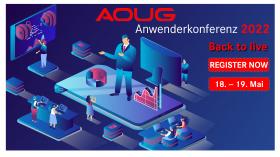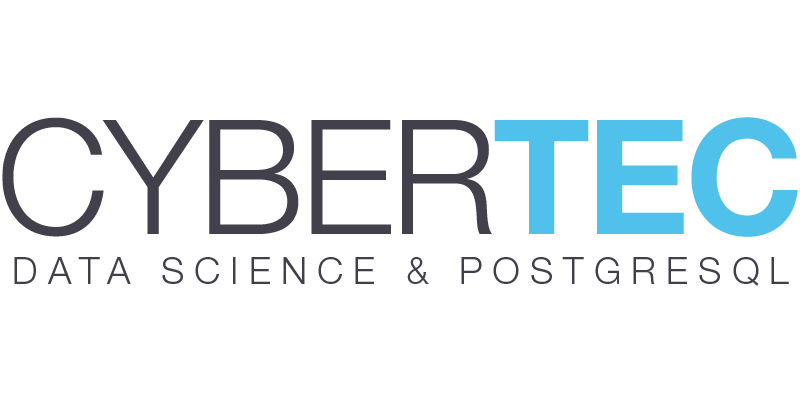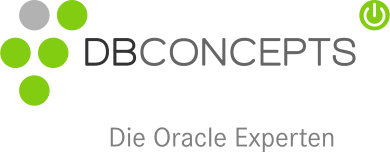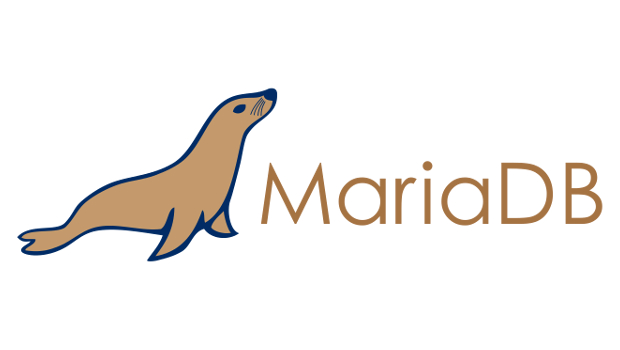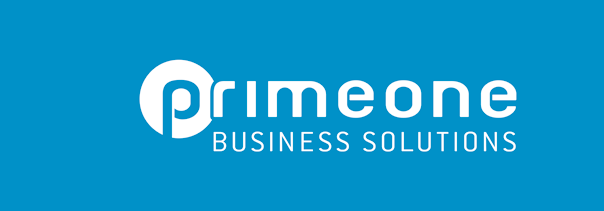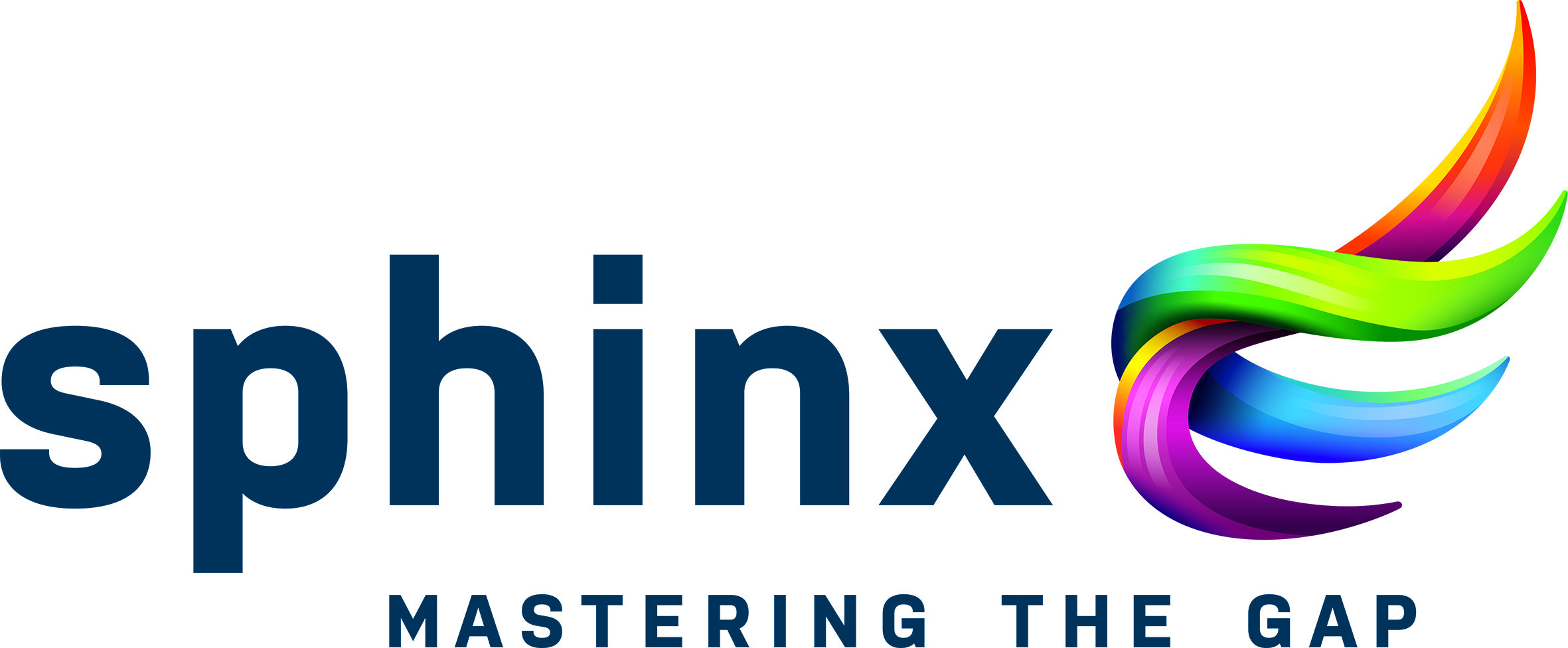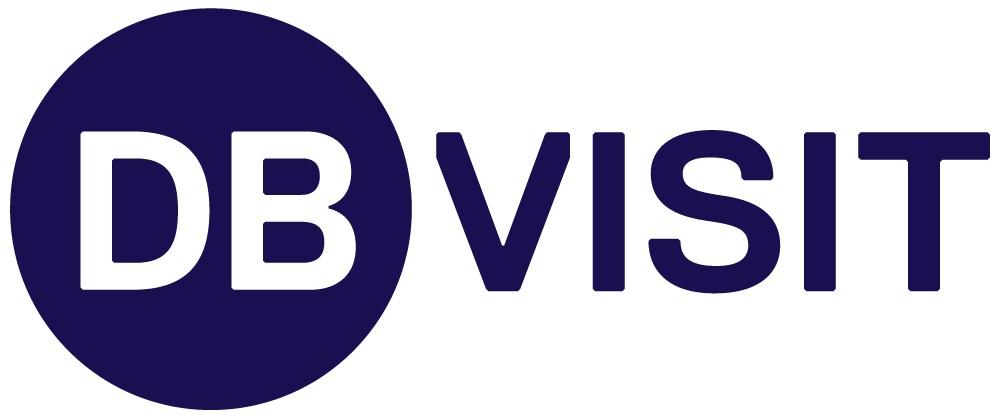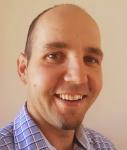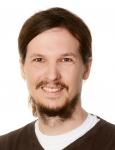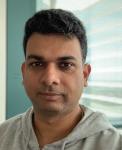| 19.05.2022 |
09:00 - 09:15: Begrüßung
Keynote
Ing. Klaus-Michael Hatzinger
AOUG Präsident
09:15 - 09:20: Begrüßung durch Oracle Österreich
09:20 - 10:10: Keynote: Was fehlt Facebook zum richtigen Staat? Und weitere Gedankenexperimente zur neuen digitalen Weltordnung nach der Pandemie.
Keynote

Dipl.-Informatiker Christoph Holz
Liebgewonnene Gewohnheiten und Geschäftsmodelle stehen am Prüfstand: Wird es in Zukunft noch Firmen geben? Oder Mitarbeiter? Ist die Digitalisierung wirklich nur eine vierte industrielle Revolution? Was kommt, wenn Amazon, Facebook oder Google gescheitert sind? Wie funktioniert die Programmierung der Menschheit? Solche Gedankenexperimente sagen die Zukunft nicht voraus. Aber sie können komplexe Veränderungen greifbar machen. Sie spielen mit dem Möglichen. Digitale Gedankenspiele sind das Trainingslager für eine gelungene Zukunft.
Christoph Holz erklärt die komplexe digitale Welt auf unvergleichliche und humorvolle Weise. Seine spannenden Gedankenexperimente zeigen den größeren Kontext und die ganz persönlichen Auswirkungen auf jeden Einzelnen. Der Informatiker und Raumfahrttechniker weiß, wovon er spricht. Er ist Start-up-Gründer, Silicon-Valley-Entrepreneur, Angel-Investor und ein echter Cyborg. Wie kaum ein anderer übersetzt er digitales Wissen in logische Zukunftsszenarien und überraschende Konsequenzen. Seine Tätigkeiten als Redner, Podcaster und Hochschullektor führten Holz von der CeBit und TEDx bis zu Google nach Kalifornien. Christoph Holz weiß mit Sprachwitz, eindrucksvollen Bildern und außergewöhnlichen Beispielen zu begeistern. Er verbindet Technologie, Gesellschaft und Wirtschaft zu einem sinnstiftenden Ganzen. Seine Zukunftsperspektiven nehmen den Menschen die Angst vor der Veränderung und beinhalten zahlreiche übertragbare Anregungen.
10:30 - 11:15: Demystifying Oracle Database Security: On-Prem & Oracle Cloud (OCI)
Track 1

Kshitij Joy
DB Alchemist Limited
With the advent of Cloud Computing the biggest challenge that is being faced by the organizations is around Database Security. I understand companies ensure Oracle MAA (Maximum Availability Architecture) but trust me it’s time to embrace Oracle MSA (Maximum Security Architecture). Through this presentation I will demystify the Oracle database security for On-Prem and Oracle Cloud Infrastructure (OCI).
I will show the evidence of the Top 10 Data Security Breaches of 21st century. We will try and understand the Major Security Threats , Artefacts of Database Security and will give you a good understanding of Oracle Maximum Security Architecture.
I shall cover the below with presentation & demos : Oracle Database Vault , Encryption using TDE & NNE , Autonomous Databases , DBSAT , Oracle Unified Auditing , Oracle Data Safe
About Kshitij Joy :
Member of an elite group of Oracle professionals by successful completion of Oracle 11g & 12c Certified Master [OCM ] & Oracle Cloud Architect Professional. I have several courses that are successfully running on the
Udemy Platform (https://www.udemy.com/user/kshitij-12/) . Having 18+Years of Experience in Oracle technologies. Providing consultancy services to several customers across the globe on Oracle Databases , Oracle Cloud Infrastructure (OCI) , Exadata Cloud@Customer and Cloud Security.
(LIVE)
11:30 - 12:15: Oracle APEX – Think Big
Track 1
Jörg Doppelreiter
Die Einführung von APEX in Unternehmen beginnt oft im kleinen – mit ersten abgegrenzten Themen, in kleinen Teams, direkt eingebettet in die produktiven Datenbanken. Beim Essen kommt der Appetit und die Nachfrage steigt – die APEX-Entwickler-Teams werden größer und zahlreicher, die Anforderungen und Themen komplexer und weitreichender. Wie kann die gesamte Infrastruktur und das Management des immer größer werdenden Teams organisch mitwachsen?
Wie bei vielen dieser Themen gibt es nicht den einen richtigen Weg, es gibt jedoch die gleichen Herausforderungen denen man sich stellen muss. In diesem Vortag möchte ich die Erfahrungen einer, so statt gefundenen, Entwicklung von einem kleinen Team hin zu mehreren international verteilten Teams teilen und auf die Schritte, auf dem Weg des Wachstums, eingehen.
(LIVE)
13:15 - 14:00: Cypress and APEX automated testing
Track 1
Lino Schildenfeld
Lino Schildenfeld
"The web has evolved. Finally, testing has too. Fast, easy and reliable testing for anything that runs in a browser."
We build apps but we all struggle with testing. How hard can it be to get automated UI testing going?
Join me for this session where we will get insight how difficult it is to incorporate openSource tool like Cypress.io into your everyday development life cycles.
Aimed at audience of all levels.
About Lino:
Lino is an Oracle APEX consultant with 15+ years of experience who has worked with clients in Europe, USA, Asia, Australia and New Zealand across all sectors. He contributes to local OUG as AUSOUG committee board member, Connect conference content chair and webinar organizer. Frequent speaker at KSCOPE, APEX Connect, APEX World, APEX ALPE Adria, HrOUG/UKOUG/DOAG, EMEA & APAC tour events. APEX blogger, ORCLAPEX-NZ meetup organizer and Oracle ACE.
(LIVE)
14:15 - 15:00: NGO goes Oracle Cloud on Free Tier with APEX 21.2
Track 1
Ing. Thomas Lieber
"Reicht das Oracle Cloud Free-Tier Angebot als Produktivumgebung für ein NGO?
Wie gestaltete sich der Umstieg der derzeitigen Wordpress Seite auf APEX?
Welche Oracle Apex 21.2. Features sind bei uns in Verwendung?“
1) Entwickler Infrastruktur Old School oder Cloud – How to Start ?
2) Apex Universal Theme vs. Wordpress Themes
3) Administration des Contents Online (für nicht APEX Developer)
4) Features Apex 21.2 Faceted Search, POI Liste, Maps
5) Pitfalls
Special Feature: Die besten Ressourcen, um mit der Oracle Cloud zu starten.
About Thomas Lieber:
Thomas arbeitet bereits seit über 15 Jahren als DBA und Datenbankentwickler. In den letzten Jahren hat sich die Erfahrung im Bereich agile Entwicklung erweitert. Schlagworte: CI Jenkins, SQL Developer Datamodeler, Oracle APEX
(LIVE)
15:30 - 16:15: The ultimate guide to Debugging in APEX 21
Track 1

Peter Raganitsch
Eine übersichtliche Einführung in die Fehlersuche in Oracle APEX 21.x für die meist verwendeten Komponenten (IG, IR, Report, Dynamic Action, ...). Die nötigen Tools dafür werden ebenso demonstriert.
Wie finde ich Fehler? Woher weiss ich, dass ein Fehler passiert ist? Bei mir funktioniert es, warum nicht beim Anwender? Diese und viele weitere Fragen werden sie sich nach dieser Session selbst beantworten können.
Debugging ist ausserdem ein sehr hilfreicher Weg APEX besser verstehen zu lernen, und zu sehen, was wirklich passiert.
About Peter Raganitsch:
Peter Raganitsch is the CEO & co-Founder of FOEX GmbH, an Austrian IT company focused on developing the FOEX Plugin Framework - a Rapid Application Development tool meant to extend the current capabilities of the Oracle Application Express and simplify the way enterprise-grade web applications are being built. Having more than 20 year of experience in using Oracle technologies, Peter is an Oracle ACE Director sharing his knowledge through articles, trainings and webinars.
He’s an active member on the Oracle APEX community, speaking at various conferences such as Oracle Open World, Kscope, DOAG, UKOUG, APEX Connect, APEX World, SIOUG and HrOUG and frequently writes about Oracle APEX on his blog: Get along with Oracle and APEX (oracle-and-apex.com). Peter’s technical knowledge and expertise extends to areas such as: Oracle APEX, PL/SQL, jQuery, ExtJS, AJAX, Oracle Forms, legacy systems migration and mobile applications.
(LIVE)
16:30 - 17:15: Outsource your tables - use Hybrid Partitioning!
Track 1

Dejan Topalovic
Nowadays the size of many BIG databases is measured in Terabytes. The costs for the storage grow linearly with the size, as well as the time needed to back up & clone the database. If you want to keep the cost and time scalable for many years, then you should use the Hybrid Partitioned Tables – a perfect solution to keep both aspects under control.
In this session I will share my experience from the real project providing you some details including gotchas during the implementation of it and I will show you: - what is Hybrid partitioned table - how to combine internal and external storage - some issues I stumbled upon implementation - comparison of the cost & time savings
About Dejan Topalovic:
Dejan is an Oracle Certified Master and Oracle ACE. He is working as an independent consultant since 2005 - started with MySQL in 1997 and then moved to Oracle in 2003. Dejan has been involved in DBA, design and development work for several multi-national companies on projects ranging from SQL & PL/SQL development to maintaining a couple of hundreds of databases. He strives to seize the best features and options out of the Oracle technologies.
(LIVE)
17:30 - 18:15: Native Apex: ausgewählte Features und Tipps aus der Praxis
Track 1
MMag. Mario Hoellwirth
Oracle Apex gibt es nun schon seit 2004 – und mit jeder Version wird Apex besser und mächtiger.
Der Fokus neuer Apex Versionen liegt - natürlich - auf den New Features. Aber, es gibt auch viele native Oracle Apex „OLD Features“, die sich in der Praxis bewährt haben – und nicht nur Neueinsteigern nicht präsent sind.
Beschleunigen und verbessern Sie Ihren Entwicklungsprozess mit ausgewählten Tipps und Tricks: „Native OLD and NEW Apex Features“ - ausgewählt aus der täglichen Apex Praxis.
(LIVE)
10:30 - 11:15: Update & Outlook Oracle Construction & Engineering
Track 2
Klaus Pally
Oracle Dienstleistungen GmbH
- What happened since the Aconex acquisition in 2017
- CEGBU strategy and focus development areas
- Introduction to Oracle Smart Construction Platform
- EU Recovery and Resilience Facility and CEGBU response
Renewable energy & Utilities
Oil & Gas
Infrastructure
(LIVE)
11:30 - 12:15: Partitionierung aus Design Perpspektive
Track 2
Andreas Schlögl
Hat man erst einmal die Partitionierung Option, stellt sich eine weitere Frage: Wie einsetzen?
Die Partitionierung ist eine mächtige Option, die die Arbeit sehr stark erleichtern kann.
Wenn man sich aber auf eine Variante festgelegt hat, ist es sehr aufwendig, die Partitionierung wieder zu ändern.
Es ist sehr wichtig, dass man die eine Möglichkeit eine Tabelle zu partitionieren, klug wählt.
Sie lernen bewährte Anwendungen der Partitionierung kennen und erfahren, wann welche angewandt wird.
About Andreas Schlögl:
Andreas Schlögl ist neben Lothar Flatz einer der Top Performance Tuning Specialisten bei DBConcepts.
(LIVE)
13:15 - 14:00: Get your money’s worth out of your Database
Track 2
Patrick Barel
Qualogy
"The database is one of the most important assets to your application. Besides being one of the most important assets it is also one of the most expensive parts in your application. Most organizations don’t get the most out of their database license and treat it like a simple bit bucket. The modern Oracle database can do so much more than just store data. Features you can use ‘in the database’ including:
- Flashback queries (what did my data look like at a certain moment in time)
- Data Security (only read and write data you are authorized for)
This presentation will show these features as well as some of the enhancements in the Oracle 19c Database including:
- Identity columns (12c)
- SQL Macros (19c)"
(LIVE)
14:15 - 15:00: Wie weit ist es bis zum nächsten Lokal? Anwendungsentwicklung mit Spatial Studio
Track 2

Hans Viehmann
Im Vortrag wird am Beispiel von Standorten von Bars und Restaurants live gezeigt, wie mithilfe von Oracle Spatial Studio Adressdaten in geografische Koordinaten umgewandelt und mit Daten aus anderen Datenquellen zusammengeführt werden können, um sie anschließend nach räumlichen Kriterien auszuwerten und in unterschiedlichen Varianten auf einer Karte anzuzeigen, ohne dass dafür Programmierung erforderlich wäre.
Im Rahmen des Beitrags wird die Architektur dieses kostenlosen Tools kurz erläutert und darauf eingegangen, mittels welcher Schnittstellen die Analyse-Workflows oder -Ergebnisse und Karten genutzt werden können. Abschließend wird noch kurz erklärt, welche Datenbank-Funktionalität den Analysen zugrunde liegt. Der Schwerpunkt des Beitrags liegt aber auf der praktischen Vorführung.
About Hans Viehmann:
Hans Viehmann is responsible for Oracles Spatial and Graph technologies in the database as well as Oracle Big Data Spatial and Graph and the associated cloud services as Distinguished Product Manager.
(LIVE)
15:30 - 16:15: Enterprise Manager as a Service
Track 2

Michael Toeth
Live demonstration of Oracle Cloud's Observability & Management Platform. Get the best of Enterprise Manager as a cloud service with a complete view of the entire database fleet and its history. Focus on monitoring, optimizing, and increasing value instead of managing monitoring tools on-premises
Summary
See the best of Enterprise Manager as a cloud service in this live demonstration of Oracle Cloud’s Observability & Management Platform. For a long time, Enterprise Manager has been a key tool on-premises to monitor and manage Oracle databases. Now we see a shift away from on-premises tools managed by enterprises and towards tools as cloud services managed by Oracle. It removes barriers to key insights for key decisions with minimal effort. Don’t focus on managing the infrastructure of monitoring tools. Instead, focus on monitoring databases to optimize performance and increase value.
Oracle’s Observability & Management (O&M) Platform delivers Enterprise Manager’s monitoring tools as a managed cloud service. It also adds new features empowered by machine learning. O&M’s holistic suite of services collects metrics, traces, and logs from databases and application servers running on-premises, in the cloud, or both. Monitor and analyze databases individually or at the fleet level – from resource utilization to workload analysis, SQL tuning, and advanced log visualizations. O&M can contain all this data in elastic cost-efficient cloud storage for years. Use this historical archive to analyze long-term trends and forecast future behavior for proactive remediation. Take advantage of machine learning to get key insights without manually going through heaps of metrics and logs with the risk of human errors. View all your databases and their history through a single pane of glass managed by Oracle Cloud.
About Michael Toeth:
Oracle Domain Specialist
Observability & Management
He is a specialist in the follow-ing services:
- Oracle Management Cloud (OMC)
- Observability & Manage-ment (O&M)
(LIVE)
16:30 - 17:15: Crisis Survival Guide of Oracle DBA
Track 2
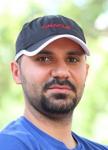
Emre Baransel
When a critical production database can't service to majority of its users we can call this a "crisis". These problems can show up in different forms like data corruptions, data loss arising from user fault, after change issues (upgrade, patch, migration etc.), hardware problems, load issues and more. It's crucial to follow right direction for the solution when "downtime" starts ticking. While supporting big customer systems for almost 10 years in Oracle ACS, i experienced these "crisis" at first hand and i prepared this presentation for Oracle DBAs to get ready for these unwanted but possible cases. I will start with general Crisis Management rules and cover a range of scenarios like RMAN restore/recovery, Data Guard failovers, Flashback features, database upgrades/migrations with spot-on hints and real-life lessons learned.
About Emre:
Oracle ACE
Member of the TROUG management.
Blogger at emrebaransel.blogspot.com, turkceoracle.com
Contributed to Oracle RMAN 11g book, published by Oracle Press.
Speaked at Oracle Open World and User Group conferences.
Oracle Certified Professional (OCP)
Special focus on high availability & disaster recovery solutions, database performance tuning and security.
(REMOTE Online)
17:30 - 18:15: Analytics at the Speed of Thought using Oracle Database In-Memory
Track 2
Ranjan Priyadarshi
Applications built on traditional technologies are complex, expensive to support, not scalable, and provide poor customer experience. Oracle Database In-Memory (DBIM) has been a game-changer for customers enabling real-time analytics in OLTP or Data Warehouse environments. With DBIM, users get immediate answers to business questions. This session will cover DBIM overview, use cases, new innovations, and best practices. You will learn how you can use power, performance, and simplicity to modernize your analytics environment. Digitalization needs to process billions of data points in real-time to provide a great customer experience. Modern applications should also have the flexibility to process any data type and workload at the fastest rate possible. DBIM has built-in full automation that empowers our business users to build and deploy applications according to business needs. Join this session and learn to use DBIM to enable real-time analytics on any data and workload in your organization and accelerate your journey towards digitalization and modernization!
(REMOTE Online)
10:30 - 11:15: Huh? It is fixed in Oracle 23c?? Seriously? - Or how Database Development at Oracle works
Track 3
Mike Dietrich
Mike Dietrich / Daniel Overby Hansen
Have you every heard from Oracle Support "It will be fixed in 21c or 23c"? And wondered if you should upgrade now, and how you should upgrade when the release is not there yet?
In this talk we will give rare insights into how Oracle Database Development works.
We will explain why it takes more than a few minutes to complete a regression test suite, why you don't get one-off patches on Windows - and why you need a backport to have "this" issue fixed on 19.14.0.
We are fully aware that you will need some beer to relax - and that everybody has a story to tell. Our focus will be to shed some light on the black box "Oracle Database Development" to get you a better understanding why things work as they work - and why miracles happen not every day but sometimes take longer.
(LIVE)
11:30 - 12:15: Oracle Database Vault - Schutz vor Räubern, Schlangen,…
Track 3

Stefan Oehrli
Oracle Database Vault ist nun bereits seit ein paar Jahren am Markt. Das Produkt wurde über die Jahr stetig verbessert. Doch wo lohnt sich der Einsatz? Welche Sicherheitsmassnahmen können damit umgesetzt werden? Und vor wem schützt mich DB Vault überhaupt? Im Rahmen von dieses Vortrages werden neben den Erfahrungen aus zwei Kundenprojekten die technischen Möglichkeiten von Database Vault 19c / 21c erläutert. Wir versuchen aufzuzeigen, wo sich unter umständen den Einsatz von Database Vault lohnt und unter welchen Bedingungen eher nicht. Dazu gehört auch, ob der Schutz vor Schlangen und Räubern sichergestellt wird.
PS: Ich habe meine Kinder gefragt was für ein Vortrag ich einreichen soll. Die Antworten waren Schlangen, Räuber und Geparde…
About Stefan Oehrli:
Stefan ist Data Engineering Manager und Trainer bei Trivadis - part of Accenture. Nach dem Studium der Elektrotechnik und mehrjähriger Erfahrung als Projektingenieur in der Mikroelektronik und Informatik begann er Ende 1998 mit der Arbeit an Datenbanksystemen. Während dieser Zeit konnte er sich fundierte Erfahrungen im Aufbau + Betrieb von Oracle-Datenbanken, der Erstellung und Umsetzung von Backup & Recovery sowie Security Konzepten sammeln. Seine Hauptinteressen sind physisches Datenbankdesign, Backup & Recovery, Containertechnologien, Datenbanksicherheit, Enterprise User Security, Datenbank Internals und alles andere im Zusammenhang mit der zentralen Oracle-Datenbanktechnologie. Neben den Trivadis Kursen und Seminaren hält er als Oracle ACE regelmässig Vorträge auf Konferenzen und User-Group-Meetings. Er ist Co-Autor des Buches "Der Oracle DBA" (Hanser, 2016). Er lebt mit seiner Familie in Muri, Schweiz.
(LIVE)
13:15 - 14:00: Ausgewählte APEX Utilities
Track 3
Manuel Reichstamm
APEX liefert einige Werkzeuge, um beispielsweise die Geschehnisse seiner Oracle Datenbank genau im Auge zu behalten oder aber DDL Statements automatisch generieren zu lassen, um somit wertvolle Zeit zu sparen. In diesem Vortrag werden drei dieser Features präsentiert: "Quick SQL", "Sample Datasets" und "Database Monitoring".
About Manuel Reichstamm:
Manuel ist Oracle Software Developer bei DBConcepts
(LIVE)
14:15 - 15:00: SQL Model Clause - nicht nur für Experten!
Track 3
Christoph Hillinger, MSc
Die Model Clause in der Oracle Datenbank gibt es bereits seit Version 10g. Sie ist mit Sicherheit eines der mächtigsten Features der Oracle Datenbank. Trotzdem führt sie weitgehend ein Nischendasein. Mit der Model Clause kann man direkt in der Datenbank sehr diffizile Berechnungen machen, nicht unähnlich den Möglichkeiten in Excel. Vor allem für alle predictive Zwecke ist es sehr gut geeignet und wenn sehr verschiedene Punkte in einem Statement laufen sollen, die mit anderen Mitteln (wie Aggregationen) mittels mehreren Abfragen gemacht werden müssten.
Dieser Vortrag soll dazu beitragen dieses mächtige Feature zu präsentieren und in den Vordergrund zu rücken.
About Christoph Hillinger:
Christoph ist Senior Oracle Developer und seit vielen Jahren Oracle APEX und ODI Spezialist bei DBConcepts
(LIVE)
15:30 - 16:15: Autonomous Health Framework - ML Applied to Save DBA's Time
Track 3
Matheus Boesing
How use the best of AHF Capabilities to Automate your work? This session covers 101 about Autonomous Healthcheck Framework for a DBA perspective, focusing on understanding how it is a tool to make your Troubleshooting and Diagnose even better based on embedded Machine Learning.This session also contain our Top features list over Autonomous Healthcheck Framework in order to make it practical for the DBAs day-to-day challenges and activities.
The session has examples and codes on quick demos for the audience on how to implement that on your environment.
(LIVE)
16:30 - 17:15: Die Linux Speicherverwaltung: warum 100% voll und Swap in Verwendung für Oracle kein Problem sind
Track 3
Martin Berger
Die Verwaltung des Hauptspeichers unter Linux erfolgt prinzipiell nach den von UNIX bekannten Methoden. In der konkreten Implementierung versucht Linux, so viel als möglich zu optimieren, was zu unerwarteten Beobachtungen führen kann.
Mit einem Einstieg in die Hauptspeicherverwaltung, den besonderen Anforderungen einer Oracle Instanz (zum Beispiel bei Hugepages) und welche Metriken hilfreiche Messpunkte darstellen bietet der Vortrag einen fundierten Einstieg in die erfolgreiche Konfiguration und Überwachung eines DB-Servers unter Linux.
(LIVE)
17:30 - 18:15: Performance Tuning bei Open Source Datenbanken
Track 3
Jens Bollmann
Bei Verwendung von Datenbanksystemen aus dem Open Source Umfeld können erhebliche Performanzverbesserung erzielt werden. Dies kann erfolgen nach Sichtung des Schemas und der
Analyse von Berichten mittels mitgelieferter Werkzeuge. Dieser Vortrag gibt einen Überblick über die am häufigsten verwendeten Werkzeuge und eine allgemeine Einführung zur Erkennung von Flaschenhälsen beim Betrieb.
About Jens Bollmann:
Jens Bollmann ist Principal Customer Engineer bei der MariaDB seit mehr als ein Jahrzehnt und hilft Kunden beim Aufsetzen einer hochverfügbaren Datenbanklandschaft. Bei bestehenden Produktionsumgebungen führt er Performance Tuning durch und ermöglicht so die schnellere Verarbeitung von Daten.
(LIVE)
10:30 - 11:15: Artificial Intelligence – Reality & Fiction
Track 4
Josef Weber
Artificial intelligence is omnipresent and has found its way into our everyday lives beyond the fields the of science and research. But what are the challenges that we, organizations and the scientific community face today to maintain the status quo and, more importantly, to move forward?
Which components will have a major impact in the future of AI when it comes to developing systems that are more autonomous and intelligent? Which enablers are already feasible and which still play a fictitious role but might have sufficient potential?
This session will provide an overview of "Where are we today?" and an outlook on the question "Where are we going?" with regard to artificial intelligence by contrasting reality and fiction.
About Josef Weber:
Josef Weber is Technology Solution Engineer – Datascience & Analytics
(LIVE)
11:30 - 12:00: Oracle Field Service Cloud – Alle Kundendienstinformationen an einem Ort
Track 4
Markus Volkmann
Die Verwaltung und effiziente Versorgung mit Informationen unserer Kundendiensttechiker war und ist das oberste Ziel des Fieldservice Projekts. Zeit ist Geld und gerade, wenn es um die Einsatzzeit unserer Mitarbeiter Vorort beim Kunden geht, ist eine moderne Verwaltung und die Zusammenfassung der benötigten Informationen an einem Ort unabdingbar.
Mit dem Einsatz der Oracle Fieldservice Cloud in Kombination mit der Oracle Integration Cloud können wir die genannten Ziele umsetzen, die Zufriedenheit der Techniker vor Ort steigern und die Effizienz im Unternehmen erhöhen.
(LIVE)
13:15 - 14:00: Analysis of Database Issues using AHF and Machine Learning
Track 4
Sandesh Rao
Oracle Autonomous Health Framework (AHF) is Oracle’s Artificial Intelligence Operations platform for autonomous database health management. This session will focus on enhancements to current functionality and new features in 21c. We will discuss how to use the data which is derived from the Bayesian Net framework of AHF to conduct root cause analysis, telemetry and remediations for issues. You will learn to utilize these features to determine workload footprint, ongoing monitoring, early detection of anomalies and performance issues, their root causes and corrective actions, prevention of node or database failures, and targeted postmortem analysis enabling quick resolution.
Session Highlights:
• Insights into AHF enhancements to current functionality and new features in 21c
• Learn early detection of anomalies and performance issues, their root causes and corrective actions
• Targeted postmortem analysis enabling quick resolution
(LIVE)
14:15 - 15:00: Automate Oracle Using DevOps Tools
Track 4

senior technology architect manager Osama Mustafa
Accenture Enkitec Group
Database administrators are typically swamped with simultaneous numerous jobs. They have to keep their database platforms up to date and working smoothly. That requires manual effort to perform certain tasks on a regular basis, sometimes daily or hourly.
This can be more complicated when the same task needs to be done across multiple database platforms.
This session demonstrated ways to automate tedious and often time-consuming, but very necessary, DBA tasks.
the benefits of automating tasks include:
• Increased throughput or productivity
• Improved quality or increased predictability of quality
• Improved robustness (consistency), of processes or product
• Increased consistency of output or results
• Frees up workers to take on other roles
• Provides higher-level jobs in the development, deployment, maintenance, and running of the automated processes
About Osama Mustafa:
Cloud Architect | DevOps | Database expert | Author
(REMOTE Online)
15:30 - 16:15: Oracle Datenbanken im "Flotten"-Modus auf der Commandline mit Python managen
Track 4

DI Kurt Rahstorfer
Oracle & Python sind eine coole Kombination. Das dürfte spätestens klar werden, wenn man sich "cx_Oracle" mal näher angeschaut hat.
Dieser Vortrag demonstriert im ersten Teil, wie man Python auf Oracle Datenbanken zugreift
und schnell (ein paar Zeilen Code) zu ansprechenden Ergebnissen kommt.
Im 2. Teil stelle ich unsere Commandline „o" basierend auf Python vor. Damit kann man Standard DBA-Tätigkeiten und "custom"-Scripts nicht nur auf einer einzelnen Datenbank
effizient ausführen, sondern die gesamte Oracle DB-Landschaft "abgrasen".
Einige Beispiele:
- Tablespaces, wo der Platz aus geht (man benötigt ca. 30 Zeichen für die gesamte DB-Landschaft!)
- Wie lautet der Patch-Status auf den einzelnen Systemen?
Mit "custom queries" lassen sich auch "exotische" Anforderungen schnell erfüllen.
Natürlich kann man die Ergebnisse speichern. Z.B. als csv-Datei oder als Tabelle in einer Datenbank.
Der Vortrag schließt mit Download-Infos, wenn man „o“ mal ausprobieren möchte.
Anmerkung: Ich könnte das auch beim „no slides afternoon“ vorstellen.
(LIVE)
16:30 - 17:15: Oracle Database on Solaris ZFS done right
Track 4
Marcel Hofstetter
ZFS is the default filesystem on Oracle Solaris. It is very powerful and easy to use.
You can run Oracle Databases very well on ZFS and profit from snapshots,
cloning and other features. Especially for larger databases (many TB)
with lots of data changes you should setup carefully.
In this session I explain the best practices and the fantastic
results of performance improvments at customers.
About Marcel Hofstetter:
As CEO of JomaSoft, an Oracle Partner, Marcel has been providing Solaris consulting, services, and products for the last 22 years. He is an Oracle ACE Director and Swiss Oracle User Group (SOUG) Speaker of the Year 2016. Marcel speaks regularly at Oracle and Solaris user groups and events and is proficient in Solaris, Solaris Virtualization, LDoms, Zones, ZFS and many other topics and products.
(REMOTE Online)
17:30 - 18:15: Klimawandel in der Datenbank?
Track 4

Jaromir D.B. Nemec
Oft ärgert sich der Benutzer über die schlechte Datenbank Performance, wenn es gestern noch alles so flott war. Der DBA beobachtet anders ein Load, nie vorher gesehen. Aber das sind alles subjektive Eindrücke; kann man sie objektiv messen und darstellen?
Der Vortrag führt basieren auf ASH Daten zwei Measures, welche den DB Load quantifizieren.
Mit Hilfe von R wird ein einfaches Modell präsentiert, welches den DB Load in seine Komponenten zerlegt: Saisonalität, Trend und Residual. Das Model erlaubt uns nicht nur die Probleme in der Vergangenheit zu untersuchen, sondern auch in der Zukunft Entscheidungen zu machen, ob der aktuelle DB Load den Erwartungen entspricht oder unüblich ist.
Der Vortrag mach gleichzeitig auch eine elementare Einführung in das Project R – ein praktischer Tool für jeden DBA und DB Developer.
About Jaromir D.B. Nemec:
Jaromir D.B. Nemec is a freelancer specializing in data warehouse and integration solutions. He can be reached at http://www.db-nemec.com
(LIVE)
|
